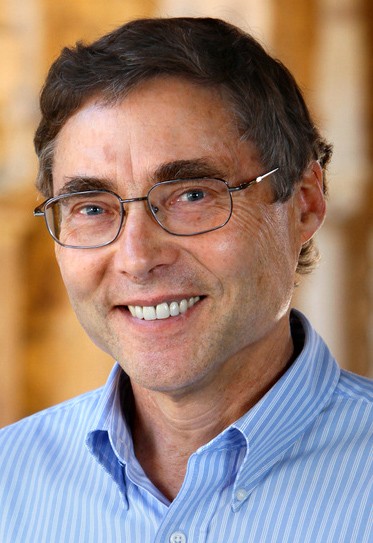Nobel Prize winner to talk about science education research
By Kathy Hovis
Nobel Prize-winning physicist Carl Wieman will visit campus Sept. 25-29 as an A.D. White Professor-at-Large, working with students and faculty and offering a public talk about his work in science education.
Wieman, professor of physics and education at Stanford University, won the Nobel Prize in 2001 for his work in atomic and optical physics. The focus of his talks at Cornell will be about his research and efforts to improve science education at the university level.
Cornell’s Active Learning Initiative (ALI), a program that gives grants to departments to help them introduce research-based teaching pedagogies into their curriculum, was modeled closely after initiatives created by Wieman at the University of Colorado and the University of British Columbia.
“When I started working with Carl as a postdoc at the University of Colorado-Boulder, ‘active-learning techniques’ was a new phrase at the college level and the field of discipline-based education research was just starting,” said Michelle Smith, senior associate dean for undergraduate education in the College of Arts and Sciences and the Ann S. Bowers Professor of Ecology and Evolutionary Biology. “Because of Carl’s vision and support, a new generation of college students at many universities experience learning in a whole new way. They come to class with their minds on, ready to solve problems, collaborate and apply their knowledge to novel scenarios.”
Cornell’s Active Learning Initiative has given awards so far to 21 departments across the university, affecting almost 150 faculty teaching 100 courses to thousands of Cornell undergraduates each year.
Wieman’s public talk, “Teaching and Learning Science in the 21st Century,” is scheduled for Sept. 26 at 4 p.m. in the Schwartz Auditorium in Rockefeller Hall. The event is free and open to the public.
“Guided by experimental tests of theory and practice, science and engineering have advanced rapidly in the past 500 years. Education in these subjects, however, guided primarily by tradition and dogma, has remained largely unchanged,” Wieman said, describing his talk. “Recent research is setting the stage for a new approach to teaching that can provide the relevant and effective science education for all students that is needed for the 21st century.”
Wieman is also the founder of PhET, which provides online interactive simulations to help students learn science, and the author of “Improving How Universities Teach Science: Lessons from the Science Education Initiative.” He is currently studying expertise and problem-solving in science and engineering disciplines, and how this can be better measured and taught. Most recently, he was awarded the 2020 Yidan International Prize for Education Research.
Along with Wieman’s public talk, he will be speaking at the Physics Colloquium on Sept. 25 at 4 p.m., also in Schwartz Auditorium. The topic of that talk is “Teaching Students to Think Like Physicists.” He will also be speaking at an event for West Campus students.
“As a new graduate student being introduced to physics education research, I was particularly excited by Carl’s notion of ‘taking a scientific approach to science education’ – that I could use my physics training and my interests in physics research to study teaching and learning in physics,” said Natasha Holmes, the Ann S. Bowers Associate Professor in the Department of Physics (A&S). “It wasn’t just that I needed to understand quantum mechanics in order to say something about how to teach quantum mechanics, but that I could also use the tools and methodologies for solving physics problems to solve physics education problems.”
A.D. White Professors-at-Large are appointed for six-year terms and visit campus for approximately one week in each three-year period. There are currently 19 active Professors-at-Large, representing five disciplines.
Kathy Hovis is a writer for the College of Arts and Sciences.
Media Contact
Get Cornell news delivered right to your inbox.
Subscribe

